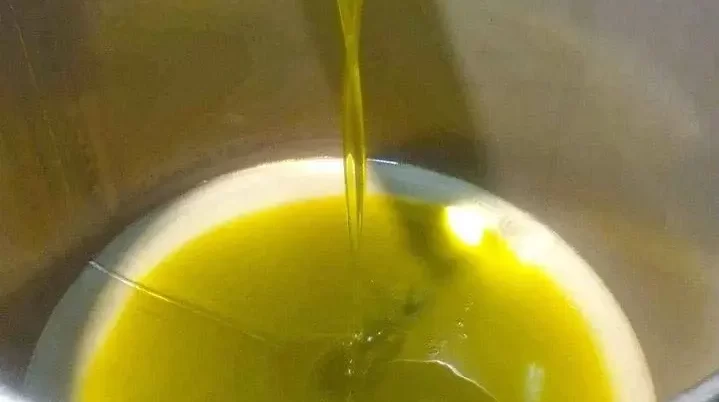In this article, we will answer the question: Can olive oil help with bed bugs?
Bed bugs are persistent pests that can cause significant discomfort and frustration when they infest our homes. Some people have wondered if there are alternative natural methods to combat them.
In this article, we will get into the topic of bed bugs and olive oil, examining whether this common kitchen staple has any potential in addressing the challenges posed by these unwelcome intruders. Join us as we explore the properties of olive oil and its potential role in the battle against these bloodsuckers.
What is Olive Oil?
Olive oil is derived from the fruit of the olive tree (scientifically referred to as Olea europaea). You can use it in cooking, food preparation, and as a condiment in various cuisines around the world.
Additionally, Olive oil is employed in cosmetics and skincare products due to its potential moisturizing and antioxidant properties.
Which Product can I apply to my body for Bed bug bites?
There is no specific product or substance that you can apply to your body to guarantee the prevention of bed bug bites. They are skilled at finding exposed areas of skin to bite. They can also easily navigate around repellents or substances applied to the body.
Can Olive Oil help with Bed Bugs?
Olive oil does not have any proven effectiveness in treating or repelling bed bugs.
They have small claws and can navigate across different surfaces, even those that may be slick or oily. However, olive oil might make it more difficult for them to move around. In any case, you should not rely solely on Olive oil when dealing with a bed bug infestation.
Can you put Olive Oil to relieve Bed Bugs bites?
Applying olive oil to bed bug bites is not a treatment that we recommend. While olive oil may have some moisturizing properties and can help soothe dry skin. it does not have any specific properties that would alleviate the discomfort or itchiness associated with bites.
If you are experiencing discomfort from bed bug bites, there are more effective methods you can try to relieve the symptoms:
- Wash the bites: Gently wash the affected area with mild soap and water to clean the area and reduce the risk of infection.
- Apply a cold compress: Placing a cold compress or ice pack wrapped in a cloth on the bites can help reduce swelling and alleviate itching.
- Use over-the-counter creams or lotions: Over-the-counter creams or lotions containing hydrocortisone or calamine can provide temporary relief from itching and inflammation.
- Take oral antihistamines: Oral antihistamines can help reduce itching and provide relief. Before taking any medication, it is advisable to receive advice and confirmation from a healthcare professional.
If you are experiencing a severe allergic reaction to bites or if the symptoms persist or worsen. You should consult with a healthcare professional.
How to use Olive Oil for Bed Bugs
Using olive oil to treat bed bugs or eliminate an infestation is not an effective method. Olive oil does not have insecticidal properties that can kill or repel bed bugs.
If you suspect an infestation in your home, we recommend you to take the following steps:
- Confirm the infestation: Look for signs of bed bugs, such as live bugs, shed skins, bloodstains on sheets, or dark spots (fecal matter) on mattresses or furniture. (source)
- Clean and declutter: Thoroughly clean and vacuum your living area, including mattresses, furniture, cracks, and crevices. Directly seal the vacuum bag in a plastic bag and dispose of it outside.
- Wash infested items by laundering them with hot water (at least 120°F/49°C) to wash infested bedding, clothing, and other washable items, and ensure they are dried on high heat. This process will effectively eliminate these insects.
- Use mattress encasements: Encase your mattress and box springs in special bed bug-proof encasements to trap any bugs present and prevent them from feeding or breeding.
- Use insecticides designed to eliminate bed bugs. Apply sprays or powders to infested areas.
If you want to know the right insecticide to get rid of Bed Bugs. You can have a look at our Bed Bugs Insecticides Buying Guide.
What Oils do Bed Bugs hate?
There are some essential oils that are believed to have insecticidal properties and may help repel or kill bed bugs to some extent. However, it’s important to note that the effectiveness of these oils has not been extensively studied or scientifically proven.
Here are a few essential oils that are often mentioned as potential bed bug repellents or insecticides:
- Tea Tree Oil: It is commonly used as a natural insect repellent and has some reported effectiveness against these insects. However, it may not eliminate an infestation entirely.
- Lavender Oil: Lavender has a strong scent that is believed to repel these insects. It may help to deter them from infested areas, but it is unlikely to eradicate an infestation.
- Peppermint Oil: Peppermint oil is another oil with a strong scent that may repel them to some extent. However, it is a standalone solution for bed bug control.
Conclusion
In this article, we answered the question: Can olive oil help with bed bugs?
While olive oil may offer some benefits in skincare and cooking, its effectiveness in dealing with bed bugs remains unproven.
While it may have moisturizing properties and a pleasant scent, it does not possess the insecticidal qualities necessary to eliminate a bed bug infestation.
Coconut oil, which has also gathered attention for its potential to repel bed bugs, is another oil worth mentioning. If you’re curious, feel free to take a look at our article discussing Coconut Oil and Bed Bugs.

